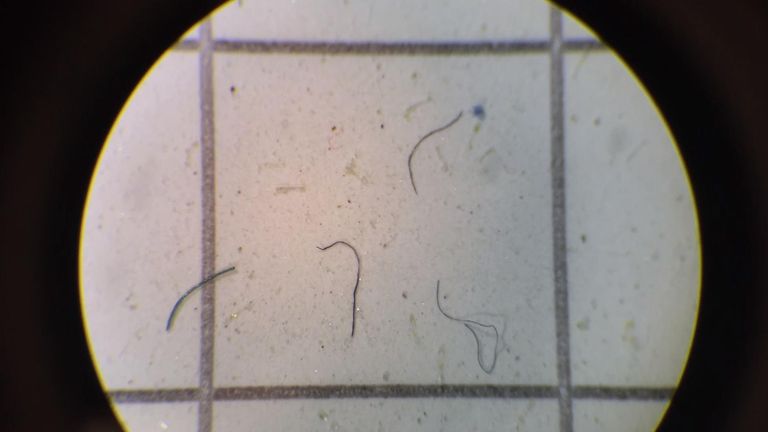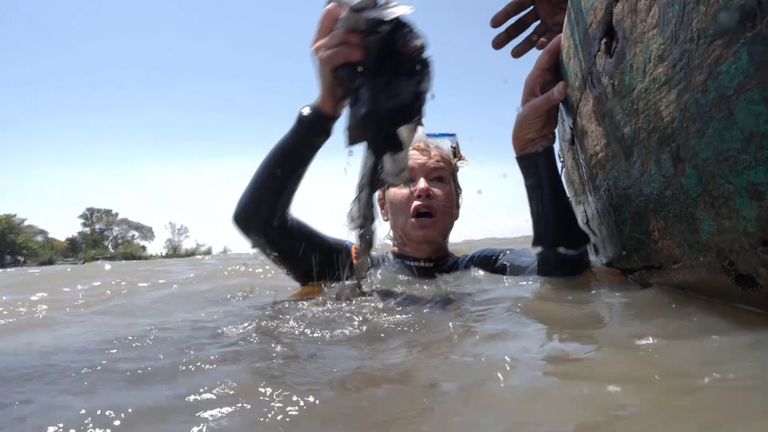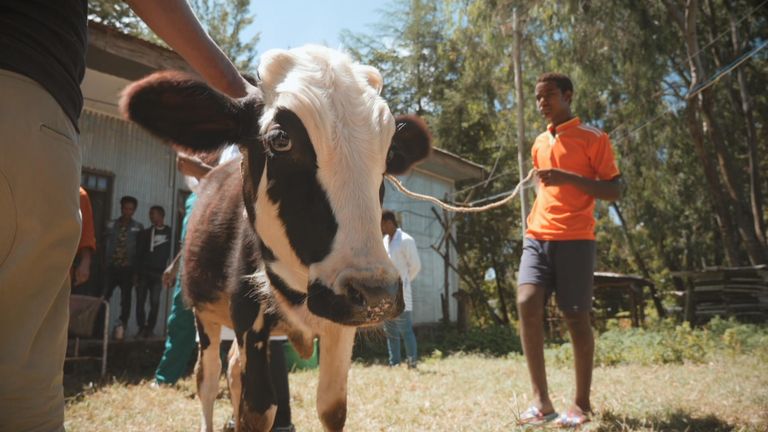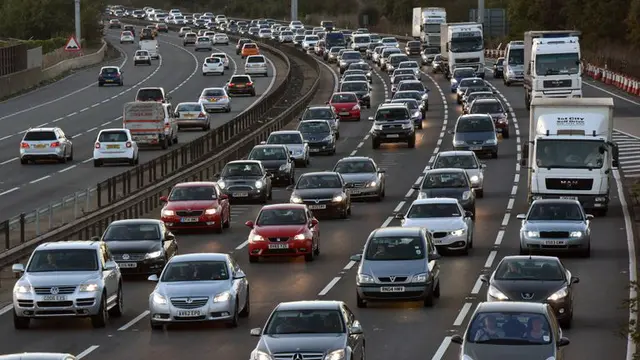Plastic particles left behind by vehicle tyres and brake pads are threatening ecosystems and marine life across the world, according to new research.
More than 200,000 tonnes of small plastic particles deposited on roads all over the globe are being carried by global winds into the oceans, the study shows.
Researchers believe most of the plastic is coming from tyres and brake pads on vehicles.

Image:Microplastics are being found all over the planet. File pic
The findings, published in the journal Nature Communications, are the latest to showcase the impact microplastics are having on all areas of life worldwide.
Research recently revealed plastic particles were even being
found in fruits and vegetables
.
The new study estimated that 550,000 tonnes of particles were shed by tyres and brakes every year and that some of the finest debris can remain in the air for a month.
It means nearly half of the particles reach the oceans - threatening ecosystems and marine life.
Andreas Stohl, from the Norwegian Institute for Air Research, led the project and told The Guardian how road pollution continues to impact the health of the planet.
"Roads are a very significant source of microplastics to remote areas, including the oceans," he said.

Uncovering plastic in Africa's biggest lake
He added: "It's such a huge amount of plastic compared to, say, clothes.
"You will not lose kilograms of plastic from your clothing.
"The really small particles are probably the most important in terms of health and ecological consequences because you can inhale them and the very small particles can probably also enter your blood vessels."
He said vehicle and tyre manufacturers "will have to respond somehow, if this really becomes a matter of concern".

Cow nearly dies from eating so much plastic
Last month, Sky News reported on scientific research into
plastic pollution in the River Nile
- and discovered that a staggering three-quarters of the fish analysed contained microplastics.
The exclusive study - the only one of its kind in the world - was carried out in secret laboratories.
Sky Ocean Rescue
was launched back in 2017 to increase awareness about plastic pollution - and to provide easy ways to take action.
 简体中文
简体中文





